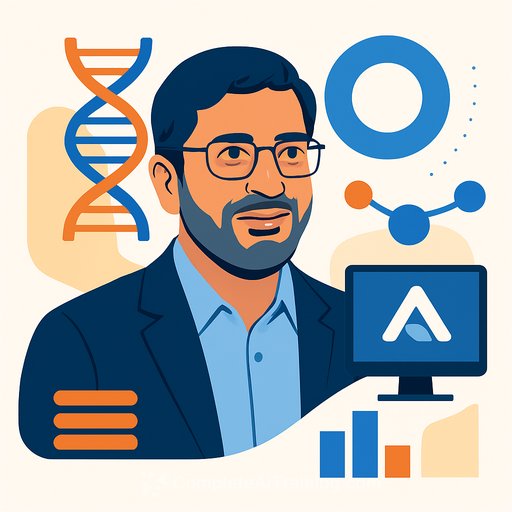EU launches twin AI strategies to speed up adoption across industry and science
The European Commission is rolling out two coordinated strategies to move AI from pilot to production across Europe. The Apply AI Strategy targets adoption in priority sectors with €1 billion in mobilized funding, while the AI in Science Strategy builds a European engine for AI-driven research, anchored by a new virtual institute called RAISE.
"I want the future of AI to be made in Europe... Putting AI first also means prioritizing safety," said Ursula von der Leyen, President of the European Commission. The message is clear: deploy faster, stay ethical, and build capability at home.
What's in scope
- Apply AI Strategy: Sector-wide adoption focused on healthcare, energy, manufacturing, robotics, automotive, and the public sector, with an emphasis on SMEs, open-source tools, and a "buy European" preference.
- AI in Science Strategy: RAISE (Resource for AI Science in Europe) to pool compute, data, funding, and talent for ethical, explainable, and reliable AI systems used in research.
- Safety and ethics: Trustworthy AI remains non-negotiable-transparent, accountable, human-centric, and aligned with human rights.
Apply AI Strategy: adoption at scale
The Apply AI Strategy is the EU's sectoral plan to increase competitiveness and reduce dependency on external technologies. It promotes an "AI first" approach, practical deployment support for SMEs, and stronger use of open-source AI.
Execution runs through three pillars: sectoral flagships across ten industries and the public sector, support measures to bolster technological sovereignty, and new governance via the Apply AI Alliance and the AI Observatory. The Observatory will track trends and outcomes to guide policy and procurement decisions.
For research-heavy teams, this means clearer frameworks for pilots, faster access to buyers and partners, and better signals on what "good" looks like in production AI.
How to act on Apply AI
- Map 2-3 high-impact use cases per unit (e.g., clinical triage, quality inspection, energy optimization) and define measurable KPIs.
- Prioritize open-source options where feasible and assess "buy European" alternatives for procurement.
- Stand up a model evaluation pipeline covering accuracy, bias, security, and monitoring for drift.
- Join the Apply AI Alliance when open to participate in pilots and share benchmarks.
- Prepare documentation aligned with EU safety and ethics requirements to shorten approval cycles.
AI in Science Strategy: compute, data, and talent under one roof
The AI in Science Strategy brings AI directly into the scientific workflow. Its centerpiece, RAISE, is a virtual institute that consolidates resources for both "Science for AI" (methods, models, and tooling) and "AI in Science" (applications across disciplines).
RAISE supports development of systems that are explainable, transparent, accountable, reliable, and safe. The goal is to produce leading European AI scientific models and translate them into higher-impact publications, faster cycles, and stronger translational outcomes.
Funding is channeled through Horizon Europe, which has allocated over €8 billion to AI since 2021. The Commission will launch a RAISE pilot-Responsible AI for Science in Europe-with €108 million under the Horizon Europe Work Programme 2026-27.
Ekaterina Zaharieva, Commissioner for Startups, Research and Innovation: "We will give our researchers, startups, and SMEs the tools to turn ideas into breakthroughs... RAISE will be the catalyst, pooling resources, mobilising investments, and attracting top talent from across Europe and beyond."
What this means for labs, PIs, and R&D leaders
- Principal Investigators: Line up AI-heavy work packages for upcoming calls; build cross-lab consortia to access RAISE compute and data; pre-register evaluation criteria and ethics protocols.
- Lab Managers: Audit datasets for quality and access rights; document provenance; set up reproducible pipelines; pre-approve model cards and data management plans.
- R&D in Industry/SMEs: Co-develop with universities; target sectoral flagship calls; validate ROI with small, time-boxed trials before scaling.
- Data Stewards: Establish intake standards, catalog critical datasets, and enforce security and audit trails aligned with trustworthy AI principles.
Funding and where to look next
- Horizon Europe: primary channel for AI in Science, including the €108M RAISE pilot (2026-27).
- European Commission: Artificial Intelligence: policy context, safety and ethics guidance, and updates on alliances/observatory.
Practical prep checklist
- Define your top 3 AI use cases, success metrics, and risk controls.
- Stand up secure data pipelines and document consent, licensing, and access.
- Set evaluation baselines (accuracy, robustness, bias, explainability, and runtime cost).
- Prepare governance artifacts: data sheets, model cards, audit logs, incident response.
- Choose a primary open-source stack with clear maintenance and security plans.
- Identify partners for consortia (compute, domain experts, SMEs) ahead of calls.
Why this matters
These strategies give researchers and innovators the infrastructure and policy cover to deploy responsibly at speed. If you prepare your pipeline, documentation, and partners now, you'll be in position to capture funding and scale results once calls open.
Skill up your team
If you're staffing new AI projects or reskilling, explore role-focused upskilling paths here: Courses by job. For fast updates on new programs and tools, check the latest listings: Latest AI courses.
Your membership also unlocks:






